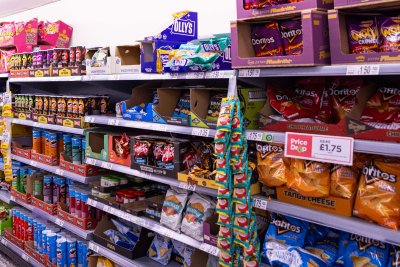Sustain: Sustain The alliance for better food and farming advocates food and agriculture policies and practices that enhance the health and welfare of people and animals, improve the working and living environment, enrich society and culture and promote equity.

Ending food poverty in Scotland
The initial report of a Scottish government working group on food poverty argues that dignity must be the core principle running through all solutions
A new report, Dignity: Ending hunger together in Scotland sets out evidence and recommendations from the first six months’ work of the Independent Working Group on Food Poverty, set up last year by the Scottish government.
The title of the report sets the keynote of the approach, which is 'founded on the principles of dignity and inclusion'. The Chair of the Working Group, Martin Johnstone, comments that people who find themselves in food poverty 'are not people who are careless with money. They are people who do not have enough money in the first place.'
The report includes recommendations on how the income of people living in food insecurity can be increased, on how the quality of emergency food provision can be improved (as long as it is still required), and on how more transformative community food models can be established. Specifically, it calls for approaches based on a right to food, for more systematic ways to measure food poverty, and for a Living Wage (as calculated by the Living Wage Foundation) to be more widely implemented. But it acknowledges that much work remains to be done, and insists that this work must include the views and decisions of those in food poverty.
The ambition is to end the need for foodbanks in the lifetime of the current Parliament, consistent with Scotland's (and the wider UK's) commitment to the Sustainable Development Goals.
Find more information on Sustain's work on food poverty here.
Sustain
The Green House
244-254 Cambridge Heath Road
London E2 9DA
020 3559 6777
sustain@sustainweb.org
Sustain advocates food and agriculture policies and practices that enhance the health and welfare of people and animals, improve the working and living environment, promote equity and enrich society and culture.
© Sustain 2026
Registered charity (no. 1018643)
Data privacy & cookies
Icons by Icons8







